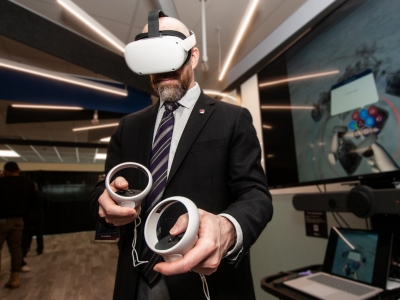By Tyrone Burke
In the 1880s, Thomas Edison took the first commercial light bulbs to market and in a few short decades, electrification was transforming industrialized cities. The change was radical and irrevocable — exactly the kind of change that is needed to address major environmental challenges we face today.
The 10th annual International Sustainability Transitions conference is gathering the global community of scholars who study these transitions at Carleton University. Running from June 23 to 26, 2019, this year’s conference is the first to be held outside Europe.
A Global Community of Scholars
“Incremental adjustments to our major systems of social provisioning will not be adequate,” says James Meadowcroft, chair of the conference organizing committee and a professor of Political Science and Public Policy and Administration.

James Meadowcroft
“Large-scale changes will be required to address problems like climate change and biodiversity loss. Climate change, for instance, will require that we move away from fossil fuels, which have become the cornerstone of our industrial civilization, literally fueling modern economies and lifestyles.
“But new and exciting opportunities are opening up to change the way society produces and distributes energy, transports people and goods, develops built environments and feeds populations.”
Radical change of this kind, understandably, doesn’t come easily. Even when new systems are superior to their predecessors, widespread adoption is not immediate. New technologies don’t always work well with existing infrastructure, and they slowly gain maturity in protected niches.
“The early niche for solar panels was spacecraft,” Meadowcroft says.
“There was just no way to get power there. And also remote installations where there was no way to connect to the grid. Early solar panels didn’t generate much electricity, and they cost a fortune, but the cost of solar has come down dramatically, especially over the past decade.
“Radical new social and technological innovations need early niches in which to prosper. Over time, new innovations benefit from experimentation and learning until they can scale up and transform broader systems.”

Accelerating Sustainability Transitions
With the theme of Accelerating Sustainability Transitions, the conference is bringing together researchers from the Sustainability Transitions Research Network (STRN) to consider how radical change to socio-technical systems can be effected quickly. It focuses on ways to achieve this change because even the most revolutionary social and technological innovations need a governance context in which they can succeed.
“All transitions involve government in one way or another,” Meadowcroft says.
“Governments often take an interest in new innovations either because they think they are strategic economically — that they can bring investment, jobs and exports, or because they are strategic militarily. Governments often invest in R&D, as the Canadian government did with the development of the oil sands 40 years ago.
“And it’s also true that new technologies often require changes to property rights in order to make them viable. Think of the trans-continental railways in Canada – there can be no railways without land for the rights of way, which either had to be granted by government or expropriated. Similarly, the digital and telecommunications revolutions required the definition of new forms of property. Governments need to take action to accelerate sustainability transitions — for example in greening the electricity grid or encouraging the shift to zero emission cars,” says Meadowcroft.
“Regulations and taxes can encourage movement away from old polluting practices while support for innovative companies and consumers can speed the uptake of new alternatives. Above all, we need visions of better low-carbon futures (for mobility, the organizations of cities, agri-food and so on) and pathways that show how we can get there.”
Wednesday, June 19, 2019 in Environment and Sustainability, Faculty of Public and Global Affairs
Share: Twitter, Facebook



